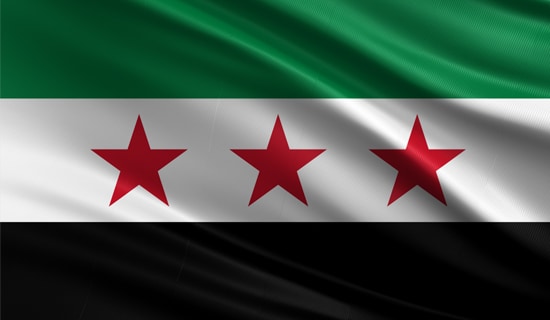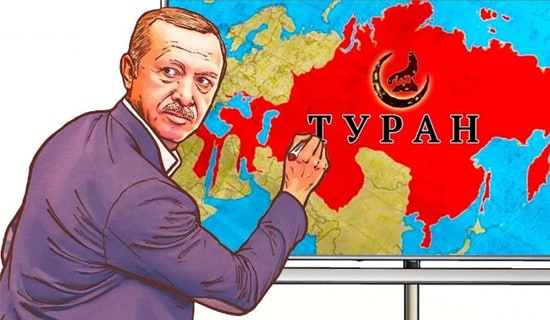
Byzantine mosaics from Hagia Sophia
When I served in Sudan under the Bashir regime, I marveled at the negotiating tactics of his ruling National Congress Party. The regime maintained one productive relationship with the U.S., that of counterterrorism cooperation, while essentially pursuing an adversarial relationship in every other field. This involved constantly escalating and relitigating activities and actions in other fields, seeking advantage or seeking to chip away at American influence. The Sudanese regime would, for example, decree the immediate expulsion of half a dozen Western humanitarian organizations in Darfur and then "negotiate" the terms, in the end maybe five would be expelled instead of six, or instead of immediately, they would be expelled in three months. Much would be made of whatever minor concessions the Sudanese gave in a minor crisis that they themselves had orchestrated. They were past masters at using process and its details, as a way of gaining advantage or delaying or distracting an opponent.
Other regimes have done similar work. The Iranian JCPOA nuclear deal was, among other things, part of a process in which Iranian negotiators wore down their foreign counterparts, making sure that key areas like ballistic missile development, or Iranian adventurism and military interference in neighboring countries, were not part of the final package. Qatar maintains the largest American military base in the region and at the same time funds a propaganda empire spewing poison against the U.S. and its interests on a daily basis. In both cases, the Iranian negotiations and the bilateral relations with Qatar, there is only so much bandwidth available in complex processes, and the adversary knows it.
Still another country that practices this strategy of escalation and process is Erdogan's Turkey, particularly in its rocky relationship with the West – "the West," in this case, meaning the United States and the European Union. Turkey is a partner of the EU on issues related to the thorny problem of illegal migration, and of the U.S. on security policy. The EU wants to keep the flood of migrants transiting through Turkey into the EU at a minimum.[1] The U.S. wants to maintain its military presence in Turkey and is also keen on preventing Ankara from growing closer (closer than the Turks already are) to Moscow and Tehran.
Recently the Turkish government moved towards fulfilling an Erdogan election promise to turn the Byzantine basilica of the Holy Wisdom, Hagia Sophia, back into a mosque.[2] Built by the Emperor Justinian the Great in the 6th century and, for almost a millennium, the largest church in Christendom, Hagia Sophia became a mosque with the Ottoman conquest of 1453 and remained so until it was turned into a museum in 1935 upon the orders of Mustafa Kemal Ataturk.
The suggestion that Hagia Sophia was on the point of becoming a mosque again has caused alarm among Eastern Orthodox Christians. U.S. Secretary of State Pompeo and U.S. Ambassador at Large for International Religious Freedom Sam Brownback have expressed their concern,[3] as has UNESCO and the EU.
For Erdogan, the fabricated controversy is tailor made. It is broadly popular domestically, especially among the Islamists and extreme nationalists that are his core. It distracts from Turkey's internal problems, its shaky response to the coronavirus, and its worsening economic situation. It creates problems for the opposition mayor of Istanbul, and overawes secularists and religious minorities who dare not complain too loudly. It whips up xenophobic fervor against the West, the Greeks, and the Americans.[4]
Whether or not a decision is announced on July 15, 2020 (all Erdogan needs to do either way is to issue a presidential decree), a process and a drama is created that feeds media speculation and fuels outrage. If it happens, Erdogan is the champion of Islam thumbing his nose at the West and at intrusive foreigners; if, somehow, he pulls back, then it will be because of outrageous foreign pressure and one more grievance to nurture. But in the larger scheme of things in Turkey's relationship with the world, the fate of Hagia Sophia seems rather small. And it would not the first Byzantine church in recent years to have been turned back into a mosque from a museum.[5]
This melodrama unfolds as Turkey is busy elsewhere, despite its economic problems. The regime continues to be a major incarcerator of journalists and opposition politicians. Turkish armed forces directly, or through proxies, are involved in hot conflicts in Syria, Libya, and Iraq. Turkey's complicated and at times mutually beneficial relationship with Iran and even with Russia continues. And Istanbul is a safe haven for more than a dozen Islamist satellite television channels beaming Arabic-language propaganda that is often deeply antisemitic, anti-Christian, and anti-U.S. throughout the region. These channels, many connected with the Muslim Brotherhood, seek to target regimes opposed to Erdogan, such as Al-Sisi's Egypt or Saudi Arabia. They daily push incendiary content promoting an Islamist agenda.[6] Of course, this media onslaught from Turkish soil is only one part of a much broader strategic alliance between Turkey and Qatar.[7]

Name of street in front of the new U.S. Embassy in Ankara is changed to Malcolm X Street
As the Americans attempt to "keep Turkey within the fold," maintain the relationship, and keep channels of communication open, more and more stress is created by Turkish actions elsewhere. This no longer, if it ever was, a situation where the supposed blame for fraught relations with Turkey lay with an ambiguous American position on Kurdish forces in Syria.[8] While American interests may sometimes overlap with those of Turkey, the trend is moving very much in the wrong direction, and whatever benefit the Americans gain seems to be increasingly outweighed by the cost to American interests.[9]
Erdogan's domestic machinations with a historic Byzantine church are not, of course, a breaking point for the U.S. Nor, evidently, is sentencing a local U.S. consulate employee to prison.[10] Nor is Turkey's blatant support for the Maduro regime in Venezuela.[11] Nor, apparently, is Turkey's blatant and long-standing support for Iranian sanctions-busting – Halkbank, penalized by the U.S. for Iran sanctions-busting, is owned by the Turkey Wealth Fund, whose board is headed by Erdoğan and whose deputy chairman is Berat Albayrak, Erdoğan's son-in-law as well as Turkey's finance minister.[12]
Whatever the secret of the personal relationship between Presidents Erdoğan and Trump, the benefit to U.S. policy seems increasingly elusive.[13] At some point, the obvious cost of a bad relationship will so outweigh the ostensible benefits that it will no longer be able to be hidden. Whether the breaking point comes this year or in the years to come will depend on the international ramifications of the next Erdoğan process ploy. or the one after that. But it seems inevitable.
*Alberto M. Fernandez is Vice President of MEMRI.
[1] Crisisgroup.org/europe-central-asia/western-europemediterranean/turkey/sharing-burden-revisiting-eu-turkey-migration-deal. March 13, 2020.
[2] MEMRI Special Dispatch No. 8698, Following Erdoğan's Promise To Convert Hagia Sophia 'Back Into A Mosque,' Quran Verses, Call To Prayer Recited In The Ancient Church, April 15, 2020.
[3] Hurriyetdailynews.com/ankara-responds-to-us-concerns-on-hagia-sophia-156039, June 26, 2020.
[4] Bipartisanpolicy.org/blog/rising-anti-americanism-in-turkey/, February 7, 2018.
[5] Romfea.news/concerns-about-the-conversion-of-hagia-sophia-in-trebizond-into-a-mosque/, May 28, 2019.
[6] MEMRI TV Clip. No. 8096, TV Host Hala Samir On Muslim Brotherhood TV: Homosexuals Should Be Killed – Burned Alive, Thrown Off A High Place, Or Stoned, June 16, 2020.
[7] Fdd.org/analysis/2019/12/11/brothers-in-arms/, December 11, 2019.
[8] Brookings.edu/blog/order-from-chaos/2019/10/09/the-us-played-down-turkeys-concerns-about-syrian-kurdish-forces-that-couldnt-last/, October 9, 2019.
[9] Cfr.org/report/future-u.s.-turkey, November 2018.
[10] Nytimes.com/2020/06/11/world/europe/turkey-court-sentences-metin-topuz.html, June 11, 2020.
[11] Bloomberg.com/news/features/2019-04-25/venezuela-turkey-trading-scheme-enriches-mysterious-maduro-crony, April 24, 2019.
[12] Foreignpolicy.com/2019/10/16/halkbank-indictment-turbocharges-u-s-turkey-tensions-zarrab-erdogan-iran/, October 16, 2019.
[13] Csmonitor.com/USA/Politics/2019/1114/My-dear-friend-Why-Trump-Erdogan-ties-endure, November 14, 2019.





